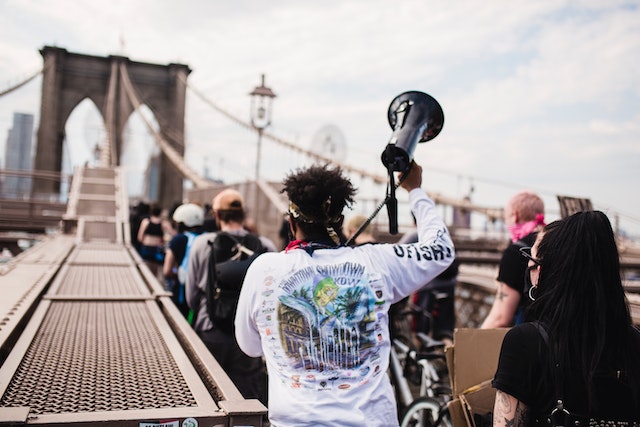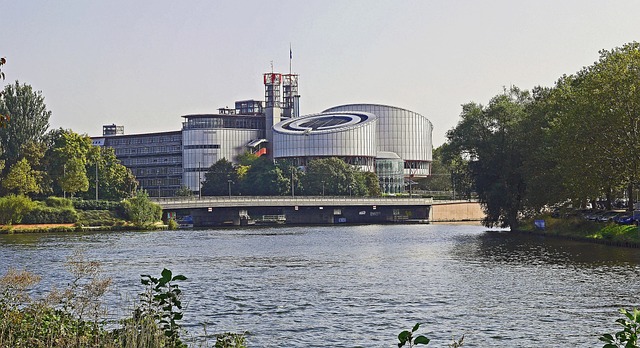


Introduction
From the rallying cries of revolutionaries to the reflective ballads of activists, music has consistently played a pivotal role in political movements worldwide. Iconic songs such as “Imagine” by John Lennon or “Amandla!” from the anti-apartheid struggle in South Africa have defined eras, encapsulating the mood and ambitions of millions.
1. The Protest Anthem: Catalyst for Change
Songs like Bob Dylan’s “Blowin’ in the Wind” or Woody Guthrie’s “This Land is Your Land” weren’t mere chart-toppers; they were the anthems of dissent, ringing out in rallies, marches, and gatherings. These songs captured the essence of civil rights movements, anti-war protests, and workers’ struggles, acting as both inspiration and call-to-arms.
2. National Identity and Patriotism
Beyond individual anthems lie national ones – songs that encompass a country’s ethos, aspirations, and history. In times of political campaigns or national crises, these anthems and other patriotically charged tunes play a key role, drawing on and reinforcing shared sentiments of pride, unity, and identity.
3. The Censorship Struggle
Yet, where there is power, there’s resistance. Many regimes, threatened by the galvanizing capability of music, have imposed censorship. From the USSR’s crackdown on punk rock to modern authoritarian regimes monitoring and silencing rappers with revolutionary verses, the stories of these artists symbolize resilience against repression.
4. The International Language of Solidarity
Music’s ability to cross borders is unparalleled. Events like Live Aid or the Concert for Bangladesh weren’t just concerts; they were global calls for solidarity and aid. Similarly, a protest song born in one nation can resonate and inspire activists worldwide, becoming a global anthem of resistance.
5. Social Commentary and Awareness
Modern artists, like Kendrick Lamar with “Alright” or Childish Gambino’s “This Is America”, use their platforms for sharp societal critique. Through their art, they highlight racial disparities, violence, and systemic inequalities, educating fans and listeners about the pressing issues of their times.
6. Politicians and Their Playlists
It’s no longer just artists who harness the power of music. Politicians curate their event playlists meticulously, understanding that song choices can reflect values, aspirations, and the demographic they aim to appeal to. Whether it’s Bruce Springsteen at a rally or the use of folk songs to connect with grassroots movements, music is a strategic tool in modern politicking.
7. Music Festivals with a Cause
Music festivals today often carry a dual purpose. Beyond entertainment, they champion causes – be it climate change, gender equality, or indigenous rights. These festivals become spaces of both celebration and activism, fostering dialogue and galvanizing attendees towards collective action.
8. Case Study: The Role of the Pandrum in Modern Movements
The pandrum, with its ethereal and meditative sound, has found a unique space in contemporary movements. Its calming tones have accompanied peaceful protests, yoga gatherings, and activist retreats. Offering a contrast to often tumultuous surroundings, this steelpan instrument is a testament to how even the most unconventional musical instruments can find political resonance.
Conclusion
As melodies continue to weave through the annals of history, one thing remains evident: music’s power in politics is enduring and transformative. In a world increasingly characterized by noise and discord, may we always find harmony in the songs of change, and may we always listen to the deeper messages they convey.

The Council of Europe is an organisation dedicated to promoting and protecting human rights in Europe. Since its foundation in 1949, the Council of Europe has developed into an important institution, which today consists of 47 member states. This article takes a closer look at the Council of Europe’s tasks and explains them.
The functioning of the Council of Europe
The Council of Europe is an international organisation dedicated to protecting human rights in Europe. It was founded in 1949 and is now the largest human rights organisation in the world. The Council of Europe promotes respect for human rights and fundamental freedoms and works to ensure that they are respected and protected in all member states. The Council of Europe consists of 47 member states, the so-called “Council of Europe States”. Each member state sends delegates to the Council, the Council of Europe’s highest decision-making body. These delegates are sent by their respective governments and form the “Parliamentary Assembly of the Council of Europe” (PVE). The PVE meets twice a year and participates in the work of the Council of Europe. The Council of Europe promotes respect for human rights in Europe. It monitors the observance of human rights in member states and publicly condemns violations. The Council of Europe promotes respect for human rights through education and information campaigns and research projects. The Council of Europe works closely with other international organisations to protect human rights worldwide. It maintains close relations with the United Nations (UN) and the Organisation for Security and Cooperation in Europe (OSCE). It takes a three-pronged approach to the protection of minorities. Education, research and consultation.
Awareness-raising
The Council of Europe carries out educational work on its topics throughout Europe. To this end, it organises seminars, conferences and exhibitions. In its publications, it also regularly provides information on current developments in its fields of work.
Research
The Council of Europe promotes research on human rights, democracy and the protection of minorities. To this end, it has established its own research institute, the European Centre for Minority Issues (ECMI), as well as several scholarship programmes.
Advice
The Council of Europe advises governments, NGOs and other interested parties on human rights protection, democratic development and the protection of minorities. It also provides technical assistance on the implementation of international standards in these areas.
Council of Europe memberships
The Council of Europe is an organisation consisting of 47 member states. Each of these countries has a House of Representatives and a Senate, both of which are represented in the Council of Europe. Council of Europe memberships are binding on countries and are only granted at the request of a country or by decision of the European Council. The Council of Europe has various tasks, including the promotion of human rights, democracy and the principles of the rule of law. It also works to promote economic and social cooperation between its member states. The 47 member states are: Albania, Andorra, Armenia, Azerbaijan, Belgium, Bosnia and Herzegovina, Bulgaria, Croatia, Denmark, Estonia, Finland, France, Georgia, Germany, Greece, Iceland, Ireland, Italy, Kazakhstan, Latvia, Liechtenstein, Lithuania, Luxembourg, Malta, Moldova, Austria, Belarus, Monaco, Montenegro, Netherlands, Norway, Poland, Portugal, Romania, Russia, San Marino, Serbia, Slovakia, Slovenia, Spain, Sweden, Switzerland, Turkey, Turkmenistan, Ukraine and United Kingdom. The Council of Europe is based in Strasbourg and was founded in 1949 as the successor organisation to the second League of Nations. The Council of Europe’s mission is, among other things, to protect human rights and promote democracy. The Council of Europe also promotes cultural diversity in Europe and awards the Prix de l’Europe every year.
History of the Council of Europe
The Council of Europe was founded in Strasbourg on 5 May 1949. The aim of the organisation was to unite the European states after the Second World War and to prevent war between them. The Council of Europe is the oldest political international organisation and consists of 47 member states. Each country has one vote in the Council of Europe. The main bodies of the Council of Europe are the Committee of Ministers, the Parliamentary Assembly and the Congresses of Regions and Local Authorities. The Council of the European Union (EU) is not a member of the Council of Europe, but may participate in its work. The Council of Europe’s tasks are to promote human rights, democracy and the rule of law, and to cooperate in the fields of culture, education, health, the environment and the economy. In its history, the Council of Europe has awarded the Nobel Prizes for Peace and Literature several times.
Conclusion – Future of the Council of Europe
The Council of Europe is an organisation dedicated to promoting human rights, democracy and the rule of law. It is also committed to preserving cultural diversity in Europe. This makes it an important player in European politics. In recent years, however, the Council of Europe has found itself in a difficult position. Many member states have refused to support the organisation financially. This has led to the Council of Europe being financially strapped. In the coming years, it will therefore be crucial to see whether the Council of Europe is able to solve its financial problems and maintain its position as an important organisation in Europe.
The European Anti-Poverty Network (EAPN) is the largest European network of national, regional and local networks, involving anti-poverty NGOs and non-governmental organizations (NGOs) and grass-root groups as well as European Organizations, active in the fight against poverty and social exclusion. It was established in 1990.
Supported by the European Commission , [1] EAPN is a network of 31 EU Member States (minus Slovenia), Norway, Iceland, Serbia and Macedonia. EAPN’s membership also includes 13 European Organizations. EAPN has a consultative status with the Council of Europe and is a member of the Platform of European Social NGOs . Read More…
ALDA , the European Association for Local Democracy , is a membership based organization established in 1999 at the initiative of the Council of Europe’s Congress of Local and Regional Authorities . ALDA works on the promotion of good governance and citizen participation at the local level, focusing on activities that facilitate cooperation between local authorities and civil society in the European Union and its Neighborhood. [1]
The assumption underlying its importance, is that strengthening local democracy and local governance is a fundamental element for securing peace, equity, human rights and economic growth in the community. Therefore, supporting actions and policies towards local democracy is an essential part of the European Union approach to governance, democracy, economy and peace. [2] Read More…
The European Association of Political Consultants (EAPC) is the professional association of Political Consultants in Europe, with members from more than 20 countries.
The EAPC was founded 1996 in Vienna . It co-organizes annual conferences and the EAPC Master Class . The EAPC is a platform for exchanging ideas between political consultants and is committed to supporting the development of democratic structures in Europe. Read More…
The European Conservatives Group (EC) is a conservative group in the Parliamentary Assembly of the Council of Europe . It was founded by the Group of Independent Representatives in 1970 by British and Scandinavian members of PACE, having about 35-40 members from the UK, Ireland, Norway, Denmark, Turkey, Sweden and Switzerland. It was known as the European Democrat Group until its renaming in 2014. Read More…
The European Youth Parliament is a politically unbound non-profit organization , which encourages European youth to actively engage in citizenship and cultural understanding. It involves 50,000 youngsters from all around Europe and has around 5,000 active members in the different countries. It was established in 1987 in Fontainebleau , France . Read More…
The Union of the Robert Schuman Institute for Developing Democracy in Central and Eastern Europe (short: Robert Schuman Institute, RSI) is the European level training institution of the European People’s Political Party , based in Budapest, Hungary. It was founded in 1995 as the successor of the Christian Democratic Academy for Central and Eastern Europe. The members of the union are political parties, organizations and foundations, and political and civic education. Read More…
The Coalition for Life and Family or Coalition for Life and Family (en, CPVF) is a European political party that is particularly opposed to abortion and promotes traditional family values, they are against homosexuality . In 2017, the party requested recognition by the European Parliament and the political party funding this. [2] [3] This was granted for the year 2017, as the party had eight members of national and regional parliaments (required: seven) from seven different countries (required: seven). Read More…